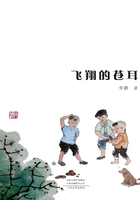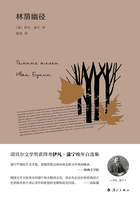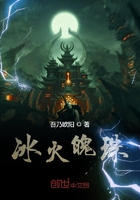An Ecological View of Vonnegut:Life and Infuences
A。 Life
Kurt Vonnegut was born in Indianapolis, Indiana, on November 11,1922. His parents were both German descendants from well-off German immigrants who made their fortune and reputation in Midwestern America since the early 19th century。The clan of Vonnegut was composed of men of intellect, cultivation, good sense, and social dedication。Kurt Vonnegut's father and grandfather were both renowned architects, a fact that Vonnegut took great pride in。On the mother's side, fortune and wealth were thechief story。The family was the owner of the most successful brewery in Indianapolis before the Prohibition, ****** enough money to support an extravagant upper-class life for three generations。As a result, his mother developed a delicate taste and insisted on an aristocratic style of living。
As Kurt Vonnegut remarked later,“My mother was addicted to being rich, to servants and unlimited charge accounts, to giving lavish dinner parties, to taking frequent frst-class trips to Europe”(Shields 22)。Consequently, she was distant to her children, thinking it was the task of the maid or housekeeper to take care of them。Since little, Kurt Vonnegut was in search of a motherly figure and craved for affection。Such desires were mostly fulflled by his sister Alice, who was only fve years older, and Ida Young, the black family cook and housekeeper。The parents lived an easy and luxurious life in the frst years of their marriage and squandered most of their inherited money。When the Great Depression overtook the country in 1929,the family suffered a sudden drop of living standards and a“precipitous fall in society”,which was humiliation to Edith Vonnegut the mother and led to her mental depression and eventual suicide。
Kurt Vonnegut had a brother and a sister, both of whom received upper-class private education because they came in the prime of their parents'life。 Bernard the brother showed much talent in science at an early age and was the apple of the eye to his parents, which became a source of jealousy for Kurt。Bernard later became an MIT graduate and a leading scientist in General Electric。He created quite a sensation when he and his colleagues succeeded in manufacturing moisture in the atmosphere to the effect of snowfall。The sense of sibling competition for Kurt with Bernard lasted most of his life, which later evolved in Kurt's life into a battle between art and science。While Bernard considered art primarily ornamental and useless, Kurt spent most of his life trying to prove that art was the family tradition(the first ancestor of the Vonneguts was a writer of a kind, describing the wilderness of America in the early years ofsettlement;his architect grandfather and father were both well attuned to art),and that science and technology, if let go unbridled, could bring doom to the human race as well as the entire universe。
Alice the sister served as the little mummy for young Kurt and the emotional support for their father later when their mother went basically insane after the family's financial downfall。 In personality, Alice was peculiar。She possessed“considerable gifts as a painter and sculptor”,but to the dismay of her father and her brother, she“did next to nothing”with her gifts。She was oftentimes quoted as saying,“Just because people have talent, that doesn't mean they have to do something with it”(FWTD 37)。Alice married to an equally impractical man, Jim Adams, who“majored in fun”(Shields 52)and dreamed of ****** big money by selling inventions of his own。Poor as their life was, it was a loving family, with children running around in a house filled with chickens and dogs and birds。However, tragedy struck in 1958.Jim was killed in a train crash and Alice, already confned in hospital for cancer, died the night she heard the news。The four boys of theirs were orphaned within 48 hours。Kurt Vonnegut adopted three of them, in spite of the fact that he had already three children to provide for。
Due to the financial downfall of the family, Kurt Vonnegut did not get the kind of upper-class education that his older siblings received, but he found what he liked in Shortridge High School—writing。 He fared well as an editor for the school newspaper, The Shortridge Daily Echo, one of the only two high-school dailies of the country at the time(PS 62)。He would have succeeded in getting a job as a journalist for Indianapolis Star if Bernard had not intervened。The then MIT graduate student in physics told him to do something more practical than becoming“daubers in art”。At that time in America,“the laurels would go to scientists, technicians, the practitioners of the practical arts”。As a result, Kurt Vonnegut ended up in Cornell, majoring in biology and chemistry(Shields 34-5)。
As Vonnegut admitted later, in Cornell“I was in a real mess”(Shields 35)。 He funked most of the science courses, chemistry, physics, math, and biology。“I had actually twice funked a course whose purpose is to exclude people like me from careers as scientists, which is thermodynamics,”said Vonnegut in a 1994 speech。In spite of his detest of the subjects, the college training did help him obtain a familiarity with technology that would enable him to write about science and technology“with a fair amount of expertness”。Vonnegut later contended that all writers should learn more about science because they need it to respond to their times and environment more reasonably, and“it's such an interesting part of their environment”(CKV 112,120)。
In contrast to his poor performance in the science subjects, Vonnegut found satisfaction in writing and became a popular editor for the university paper, the Cornell Daily Sun, the oldest independent college daily in the United States。 Still, as he failed in too many courses, he dropped out in January 1943.After that, he decided to enlist for the army, ready to fght in WW Ⅱ。He had been hard-headed against the war and wrote editorials for the Sun in support of isolationism, thinking that this is the only reasonable response to Hitler and America should not rush to arms。But when Japanese struck Pearl Harbor in January 1943,he began to think that it was“clearly a war that had to be fought and there are very few of those in history。It was worth fghting”(Shields 48)。
His parents were ashamed of the decision。 To his father, his son's becoming a common foot soldier with a backpack and a rife was low and incommensurate to his education and family background。For his fragile mother,“the prospect of losing her son in the impending holocaust made her cup of troubles overflow”(PS 55)。Before leaving for the European battlefeld, Vonnegut surprised his folks by arriving home on a three-day pass, spit-and-polished in his uniform。However, on Mother's Day, his last day of leave, he and his sister found their mother dead in bed from anoverdose of sleeping pills。
What happened afterwards is well-known, as it led to his famous novel, Slaughterhouse-Five。 He was shipped to Europe and put to the front。The frst battle that he entered was the Battle of the Bugle, in December 1944.It turned out to be also his last—the battle was the last victory on the German side and the biggest defeat the American armies had ever experienced in history(PS 87)。Vonnegut and his fellow soldiers were captured and sent to Dresden, where they were made to work as laborers。On the night of February 13,1945,the British and American air forces operated the frebombing on Dresden。135,000 people were killed in two hours。The beautiful city, the“Florence on the Elbe”,was burned down overnight。“It was a terrible thing for the son of an architect to see,”Vonnegut later said of the experience(CKV 12)。He and other POWs survived the disaster only by hiding two stories below the ground in the meat locker of the slaughterhouse where they were housed。The next day, they were made to evacuate all the corpses。This traumatic experience became a lasting influence and the framing story throughout Vonnegut's writing career。
After the war, he got married and was enrolled in the University of Chicago on the GI Bill, in anthropology, which, to his pleasure, was“a science that was mostly poetry”(Shields 87)。 The study of cultural anthropology opened his mind and enabled him to see different people and cultures in an equal and connected way。He also derived the idea of“folk society”there, upon which he later developed his theory of“artifcial extended families”。Unfortunately, however, because of the untimely arrival of their frst baby, he had to quit in 1947 after conscientious efforts failed in finishing his thesis。He wouldn't get his MA diploma until his ffth novel, Cat's Cradle(1963),was published。With the infuence of his brother, he got a position as the public relations man with the General Electric Corporation in Schenectady, New York, to report on his brother'ssuccessful experiment。Although he later found this job constraining, the experience with one of the largest companies in the country gave Vonnegut a valuable glimpse into the operations of big businesses and the power of science and technology。His first novel, Player Piano, was expressly modeled on General Electric。
Vonnegut's first short story,“Report on the Barnhouse Effect”,was published in February,1949,in Collier's magazine。 It turned out to be very well paid($750,two-month pay at GE)。So after a couple of more short stories got published, at the end of 1950,Kurt Vonnegut quitted his job at General Electric and moved to Cape Cod, where he lived as a freelance writer。This became the beginning of his long and hard journey in search of recognition, as described earlier in this book。
We learn of Vonnegut's life and experiences from a number of sources:scattered autobiography in the“introduction”,“prologue”,“editor's note”or first chapters of his novels;autobiographical essays in the non-fction collections;biographies, interviews and conversations。 But although some facts about his life are heavily dwelt upon, such as the suicide of his mother on Mother's Day before he was going to the European battlefeld, his captivity in Germany after the defeat of the Battle of the Bulge, and, most of all, the experience of the Dresden frebombing, but some aspects of his life remained blind spots。For example, how did he grow up as a young child, particularly during the Great Depression?All the narratives about his early life are sketchy in comparison to the substantiality of other periods。In a letter he wrote to the headmaster of a school that banned Slaughterhouse-Five, he talked of the period saying that he“did a lot of farm work as a boy”(PS 5),as a proof that he, as a writer, is real, robust, healthy, and down to earth。But we know no detail about this experience。In his 500-odd-page biography, the only complete life story of Kurt Vonnegut, Charles J。Shields does not bring much light to such dimmed spots either。
Such lacking is conspicuous with Vonnegut's“animal experiences”。Probably due to the lack of perspective and critical interest, as is always the case in studies concerning the ecological outlook of authors, we found very scarce accounts about Vonnegut's experience with animals, especially in his formative years。However, this does not mean Vonnegut had no interest in animals。Charles J。Shields mentions one thing in the biography which verifies the belief that Kurt Vonnegut likes animals since young。When choosing courses for freshman science at Shortridge High School, the biographer relates,“he wanted to enroll in zoology because he liked animals”(29)。In a review of Galapagos, Peter J。Reed observes quite emphatically that Vonnegut“has always had a warm heart for animals”。He cites an example in parentheses that“in his high school writing he borrowed the nom de plume‘Ferdy’from that wonderful children’s book,‘Ferninand and the Bull’”(1990:63)。In the introduction to his conversation with Vonnegut, Robert Taylor gives a deion of the setting where the Vonneguts were living:It is a white-and-gray Barnstable farmhouse。“In the darkness of the eaves scuffe barn swallows。”He quotes Mrs。Vonnegut as saying:“We built the barn for them, really”(CKV 7)。He then gives special attention to the birds that say“Poo-tee-weet”in the stillness of the summer day:“Vonnegut, who knows bird language, has reproduced this phonetic in his fction, something that has meaning when human language fails”(CKV 7-8)。
Other evidences of Vonnegut's love for animals can be found in the authorial introductions to his novels。 For instance, in Slapstick, he describes his love for dogs:
Also:I cannot distinguish between the love I have for people and the love I have for dogs。
When a child, and not watching comedians on flms or listening to comedians on the radio, I used to spend a lot of time rolling around on rugs with uncritically affectionate dogs we had。(SS 2-3)Vonnegut's attachment to animals also bears out in the fact that in most of his novels, at least one of the characters—sometimes the leading character, sometimes a minor one—is assigned a dog as companion。 Rumfoord in The Sirens of Titan, Dwayne in Breakfast of Champions, and Selena in Galapagos are all such examples。In Slaughterhouse-Five, to illustrate the loneliness of Billy Pilgrim in spite of his postwar comforts and riches, the narrator says,“There wasn't a dog, either。”Quickly but in a separate paragraph, he continues,“There used to be a dog named Spot, but he died。So it goes。Billy had liked Spot a lot, and Spot had liked him”(SF 62)。The sadness for losing the dog friend is apparent。
There are also indications of his affection for animals in his public statements。For example, when discussing the merits and demerits of Ernest Hemingway, he remarks,“I hate his killing big animals—it seemed so unnecessary”(CKV 275)。Besides, self-mocking as he is, he always compares himself to animals。For instance, in the opening chapter of Fates Worse Than Death, he remarks,“Here we go again with real life and opinions made to look like one big, preposterous animal not unlike an invention by Dr。Seuss, the great writer and illustrator of children's books, like an oobleck or a grinch or a lorax, or like a sneechperhaps”(FWTD 19)。As he does with Billy Pilgrim and many other characters, Vonnegut presents himself as one of those awkward and preposterous animals。
There are also concrete clues in his life。 When Vonnegut was of school age, his parents sent him, like his brother and sister before him, to the Orchard School, a private progressive school。The school was operated on the educational theorist John Dewey's belief that students should be a little community of doers。There were a lot of hands-on activities for the children。Vonnegut loved it there。He had responsibilities and others depended on him。“He joined with classmates in caring for Billy the goat;running the school library;operating the goodies store;even managing a student savings bank。”Watching over them was a teacher and naturalist, who eventually became the school headmaster, Hillis L。Howie。He was a benevolent man who cultivated in the children individual abilities and respect for self and others。He believed as Aristotle wrote,“For the things we have to learn before we can do them, we learn by doing them。”So the children built whirligigs while they were studying weather, model ships when the subject was exploration, and planted a garden, which they harvested in the fall, putting fresh vegetables out for lunch they had raised themselves。
In the summer of 1938,when he was about to begin his junior year at Shortridge High School, Vonnegut had another experience with Hillis Howie which turned out to be a life-changing infuence。 He joined Hillis Howie's nine-week prairie camping trip to the American West。It was a hard trek into the wilderness。Howie deliberately“sought out the remote and generally unknown wilderness regions”,as he said,Sometimes we pretended that we were the first white men to penetrate these wilds。 In many spots, the boys had an opportunity to compare the unspoiled land with country that had been‘developed。'We led a ****** life, did our own cooking, gathered firewood, sagebrush or buffalo chips for fuel and slept under the stars almost every night。We were providing a pioneer experience for the boys in a frontier part of the nation。(qtd。in Shield,“Prairie Adventure”)
In a 1987 interview with Hank Nuwer, Vonnegut recounted this experience in great detail and with deep affection:
We had a truck and three station wagons, and we traveled all over the West。 We had specific missions from the Field Museum in Chicago。I was a mammalogist, for instance, and I put trap lines out every night。In fact, when I went out, which was about 1938,I caught a subspecies of the tawny whitefoot mouse which had not been seen before, and presumably its pelt is at the Field Museum if anyone wants to look at it。When I was in the army telling someone about this, he immediately named it Meesis Vonnegeesis。(CKV 252-3)
The expedition was an unforgettable experience of adventure, inspiration, and self-discovery for a boy at the tender age。 Shields thus describes his excitement:
Away from the pall of his home life where his parents sometimes quarreled late into the night, and away from his brother's talk about science that“bored the ****”out of him, Kurt came into his own。 He mounted an outcropping of rock and, pounding his skinny ribcage, let out a Tarzan yell that drew shouts of admiring laughter from the other boys。He was just like them—he belonged。(“Prairie Adventure”)
Commenting on Howie in his later years, Vonnegut remarked,“It took me a long time to realize what a great man Hollis Hillie was。 That's part of the American experience to suddenly come across a truly great person who never becomes rich or famous, but who is enormously benefcial just to those near him。Hillis Howie was such a person, a great naturalist, very kind and strong with boys”(CKV 252)。The infuence was more than just the love for animals and the desire to explore the secrets of life。It was about worldview。As Vonnegut refects affectionately:
The value system under which I try to operate relative to animals and plants and the earth and persons with cultures different from mine is one I learned from him。 There are thousands of us who were lucky enough to come under his infuence, and my guess is that we are more at home on this planet, and more respectful of it, than most of our neighbors are。(Shields 2011:15)
It is small wonder then that Vonnegut dedicated Galapagos, his fourteenth novel and one he would grade A (CKV 259),to Hillis Howie。 He also created a character in the model of this beloved teacher, Mary Hepburn, the high school teacher who plays the role of“Mother Nature Personifed”in the survival and propagation of the human race isolated on the Galapagos Islands。For Vonnegut, the wilderness trek in the summer of 1938 was an experience of rebirth。Hillis Howie, like Mary Hepburn, was the middle wife who brought into the world his new life。
Every summer, the Vonneguts went to their summer resort at Lake Maxinkuckee(spelt by Vonnegut as“Maxincuckee”)。 It was a large body of pure water surrounded by forests of oak, beech, and maple。Every summer the Vonneguts and their relatives enjoyed sunshine, bathing, swimming, rowing, reading by the evening campfre, and family games。It was also a great occasion for refreshing their German legacy。It was there that young Kurt, Jr。no longer felt neglected and lonely。On the contrary, he basked in the warm feelings of affection and belonging。The feeling was so precious for him that when he married, he arranged his honeymoon visit to the Lake。“Kurt wanted his bride to see it with him”,although their summer cottage was already sold before they went there。
Many years later, the memory could still bring back sweetness and warmth。“[……]everything about that lake was imprinted on my mind when it was so little and was so eager for information, it will be my lake as long as I live”(FWTD 50)。Time and again, Vonnegut claimed that Lake Maxinkuckee was“an enchanted body of water to me,”it was“my Aegean Sea”(Shields 23)。Like the oceansto Herman Melville and the Maine forests to Nathaniel Hawthorne, Lake Maxinkuckee was the spiritual sanctuary for Kurt Vonnegut。He needed to constantly look back to feel at home。It was a defning experience that shaped his“understanding of time and space and[……]destiny”(FWTD 50)。As he said in Fates Worse Than Death,
No matter where I am, and even if I have no clear idea where I am, and no matter how much trouble I may be in, I can achieve a blank and shining serenity if only I can reach the very edge of a natural body of water。[……]This is because I made my frst mental maps of the world, in the summertime when I was a little child, on the shores of Lake Maxincuckee[……]。(49)
Apart from the family gathering, the lake, with its unique geography and the open, sunny, refreshing natural scenery must have contributed to this profound and lasting effect。 With this knowledge, we can understand why in two of his most sentimental and romantic novels, The Sirens of the Titan and Galapagos, the happiest time of his characters is spent by the water:in the former, it is exactly a lake, while in the latter, it is the deep blue sea。
In sharp contrast to the lake experience, the experience in Dresden had traumatic effects on Vonnegut, who was then only twenty-one。 Together with the appalling sight of dead bodies killed during the firebomb, Vonnegut encountered the miserable scene of a host of maimed zoo animals。Shields gives a deion to this encounter:
They passed the corpse of a boy with his burned dog at the end of a leach;bodies of children dressed in party clothes;blackened drivers slumped at the wheels of their cars;couples who had leaped into fountains for safety and plunged into boiling water instead。 The Dresden zoo, blown open by direct hits, had released its ark of animals into the wild。The men spotted a llama mounting slopes ofdebris。Exotic birds, with no trees to sit in, preened themselves on twisted iron railings。A chimpanzee, once popular with children, sat alone without hands。(2011:73)
Vonnegut also talks about the Dresden zoo in Fates Worse Than Death。 In Chapter Eleven, he recounts how a stranger gave him a document from a“Bomber's Baedeker”from World War Ⅱ,because he wanted Vonnegut to feel confirmed that“Dresden was no more a military target than Kalamazoo, Michigan, is today”and that bombers did have the ******* to decide where to drop the bombs if there were extra ones。Vonnegut says,“There was a zoo in Dresden for the entertainment of potential soldiers and nurses。The Baedeker for Bombers missed that one, but the bombs didn’t。You should have seen the giraffe after the frestorm。(I did)”(108)。Sparse as the deion is, the suffering, fear, and bewilderment the animals must have felt are not hard to imagine。The barbarity of the war refected in the fate of animals must have registered deep in the mind of the future writer, so that whenever he writes of destructive forces, he never forgets to give special attention to their impact on animals。In his creation of the Tralfamadore zoo in Slaughterhouse-Five, although the zoo animals are not present, Vonnegut might as well have the maimed and lost animals in mind。














